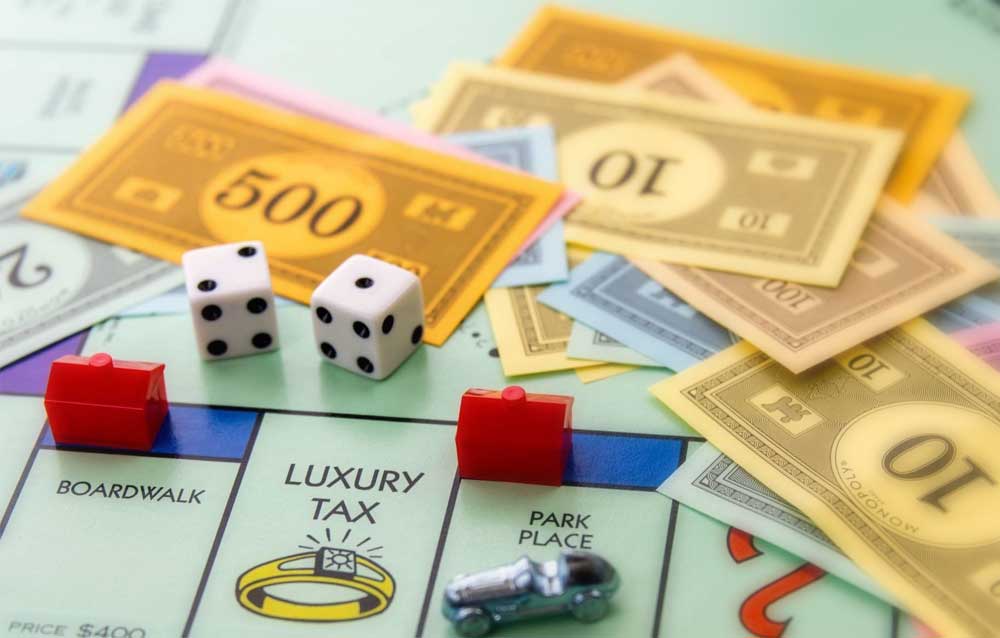
Monopoly is a classic board game that has entertained families and friends for generations. The game’s objective is to bankrupt your opponents by buying, selling, and trading properties on the game board. Despite its popularity, there are several myths and misconceptions about the role of luck and skill in Monopoly. This article aims to debunk these myths and provide a comprehensive analysis of the balance between luck and skill in the game. We will address the impact of dice rolls, card draws, and how strategic decision-making can influence the outcome of a Monopoly game.
1. The Role of Luck in Monopoly
Dice Rolls and Their Impact on the Game
In Monopoly, players roll two six-sided dice to determine how many spaces they move on the board. The roll of the dice is undoubtedly a significant factor in determining a player’s progress in the game. A player’s luck in rolling the dice can affect which properties they land on and have the opportunity to purchase. However, it is crucial to note that while luck plays a role in determining movement, the outcome of a game is not solely dependent on the roll of the dice.
Chance and Community Chest Cards
Another element of luck in Monopoly is the drawing of Chance and Community Chest cards. These cards can have both positive and negative effects on a player’s game, such as receiving cash bonuses, paying fines, or even going directly to jail. The unpredictable nature of these cards adds an element of uncertainty and luck to the game. However, similar to dice rolls, these cards do not solely dictate the outcome of a game.
2. The Role of Skill in Monopoly
Strategic Property Acquisition
One of the primary ways that skill plays a role in Monopoly is through strategic property acquisition. Players must decide which properties to buy and when to buy them. The decision-making process often involves evaluating the potential return on investment for each property, as well as assessing the risk associated with the purchase. By understanding the game’s mechanics and making informed decisions, players can exert control over their financial success in the game.
Negotiation and Trading
Another aspect of Monopoly that requires skill is negotiation and trading with other players. To build monopolies and secure the most valuable properties, players must engage in strategic negotiations and trades. This aspect of the game requires a keen understanding of the game’s dynamics, as well as the ability to read and manipulate the motivations of other players. Skilled negotiators can often secure deals that benefit their long-term game plan.
Managing Resources
In Monopoly, players must manage their resources effectively to remain financially solvent and avoid bankruptcy. This involves budgeting for potential expenses, such as property maintenance and taxes, and making decisions about when to invest in property improvements. Skilled players will carefully manage their resources to ensure that they can meet their financial obligations while still pursuing their strategy for victory.
3. Debunking Common Monopoly Myths
Monopoly is Purely a Game of Luck
While luck does play a role in Monopoly, particularly in the early stages of the game, it is not the sole determining factor in a player’s success. Skillful decision-making, negotiation, and resource management can all influence the outcome of the game. Players who develop and execute a sound strategy are more likely to emerge victorious, even if they experience occasional setbacks due to bad luck.
The Most Expensive Properties Guarantee Victory
Another common misconception about Monopoly is that owning the most expensive properties guarantees victory. While owning valuable properties can provide a significant advantage, it is not a foolproof path to success. Skilled players understand that strategically acquiring a mix of properties, including less expensive ones, can be a more effective strategy. Diversifying property holdings can provide a steady cash flow and protect against financial setbacks, giving players the flexibility to adapt their strategy as the game progresses.
4. The Balance Between Luck and Skill in Monopoly
Early Game vs. Late Game
The balance between luck and skill in Monopoly shifts as the game progresses. In the early stages, luck tends to play a more significant role, as players rely on dice rolls and card draws to acquire properties and establish their initial positions on the board. However, as the game moves into its later stages, skill becomes more critical. Strategic decision-making, negotiation, and resource management become increasingly important in determining the outcome of the game.
The Importance of Adaptability
A key factor in striking the right balance between luck and skill in Monopoly is adaptability. Players who can quickly adjust their strategy based on the changing circumstances of the game are more likely to succeed. This may involve reevaluating property acquisition plans, altering negotiation tactics, or adjusting resource management strategies. The ability to adapt is a crucial skill in Monopoly, as it allows players to capitalize on opportunities and mitigate the impact of unlucky events.
Conclusion
Monopoly is a complex game that involves a delicate balance between luck and skill. While luck plays a role in determining the outcome of some aspects of the game, such as dice rolls and card draws, skillful decision-making, negotiation, and resource management ultimately have a more significant impact on a player’s success. Debunking common myths about the role of luck in Monopoly highlights the importance of developing a sound strategy and honing the skills necessary to adapt and thrive in the ever-changing landscape of the game.
